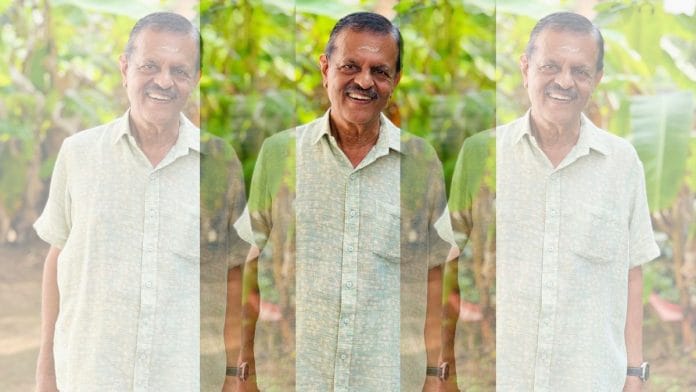New Delhi: “I will be glad if I am able to inspire youngsters to take up science,” said 80-year-old Nandakumar Menon, an engineer from Kerala’s Kochi, who took an entrance exam for B.Sc in data science at the Indian Institute of Technology (IIT) Madras earlier this week.
Menon, a mechanical engineer by profession, sat for the test on 5 June. The course is held via online mode and aspirants have to take an entrance test consisting of four papers that are considered extremely tough. Menon said he has managed to clear the test “partially”, with two papers still left to be cleared.
Speaking to ThePrint, Menon said that he wanted to challenge himself. “I have been a mechanical engineer with specialisation in cryogenics. I wanted to upgrade myself with new-age skills like data science and hence I appeared for the test,” he said.
“I don’t want to hog the seats meant for younger people, which is why I took up the online programme and not a classroom course. In fact, I will be happy if young people get inspired by me and take up science and engineering,” Menon added.
A representative of IIT-Madras, who did not wish to be named, told ThePrint that students are awarded a degree post completion of the course.
‘Passionate about engineering’
Menon also said that while his family supported his decision to study at this age, he did face some awkward reactions at the exam centre where he wrote the test.
“When I went to take the test at the exam center, the guard stopped me, thinking I was with a student and not a candidate myself. I had to tell him that I was a candidate and then he let me in,” he said laughing.
Menon had pursued his Bachelors in engineering from a college in Trivandrum and did his Masters from Syracuse University, New York, in 1966. Menon said that he had gone to New York on a NASA-supported fellowship.
“I have always been passionate about engineering and still continue to work as an engineer. I am currently working as a consultant at a firm owned by a family member,” he said.
Also read: Focus groups, recovery courses, surveys — how states aim to fix Covid learning loss of kids






